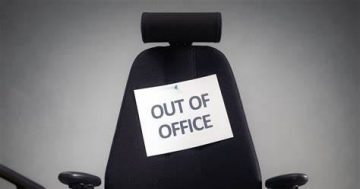
Your team has to understand from the start what it needs for success. Photo: File.
May Busch suggests a middle way between ”pray and hope” and micro-managing when it comes to bringing an urgent team project to completion.
As a leader, it’s your responsibility to make sure the work gets done, but it can be tough to find the right balance of supporting your team members while also holding them accountable for their performance.
Plus, you need to work out how to have performance conversations without offending your team, feeling like you’re micro-managing them or addressing an issue too late to save the situation.
So how can you keep your team on track more easily and with less stress?
You can hold your team accountable by using what I call “good contracting up-front”.
This strategy helped me go from a worrisome micro-manager to a strategic leader who empowers her team. It can work for you too.
There are three parts to it and they become simpler as you go through them.
First, agree on expectations, standards and deadlines at the start of the project.
Agreeing on these key points is a crucial first step to get your team pulling in the same direction on the same timeline.
How you agree on these key points can be done in many ways. You can present this information to your team, or ask for members’ input, or ideally use a mix of both.
Whatever method you choose, by the end of the conversation you and your team should be clear on the answers to the following questions:
What does ”good” look like for this project?
What resources are needed to get to the finished product?
What tasks will each person be doing, by when, and to what standard?
How will we make sure deadlines are met?
Using good contracting up-front makes it easier for you to hold people accountable throughout the project because everyone has agreed on the key parameters.
Your team members can even hold each other accountable when they’re all part of the agreement.
When your team is clear on what’s in the contract, it can more easily execute on its work and you’ll have peace of mind that the project is being handled.
Next, be sure to check for understanding. What you say and what someone else hears can be two different things.
That’s why it’s essential to ask your team members to share back their understanding of what’s being agreed, especially if you’ve done most of the talking to present the key expectations.
Part of being an excellent communicator means being a good listener, so make sure you pause afterwards to give people a chance to ask any clarifying questions. Taking a few extra minutes to make sure everyone is clear can save hours or even days later on.
Finally, make sure to ask the single most important question for accountability. This is: “Do you have everything you need to be successful [with project X]?” Again, here is when you need to pause and be patient.
If you’ve created an environment where people feel safe to be honest, they will tell you what they need, whether that’s time, staffing, connections, or anything else that would keep them from getting the job done.
When the answer is “Yes, I have everything I need to be successful”, the contract is set and you’re equipped to hold each other accountable.
The best time to do good contracting is at the start of the project, but the second-best time is now.
If your project is already underway, you can still meet with your team and ask: “By the way, I didn’t ask you before, but do you have everything you need to be successful?”
It’s not too late to start the conversation, get clear on expectations and set the team up to succeed.
Good contracting is a great way to build trust with your team, lessen your stress as a manager and achieve a balance between support and accountability.
So when it comes to holding your team accountable, remember to use good contracting up-front.
*May Busch’s mission is to help leaders and their organisations achieve their full potential. She works with smart entrepreneurs and top managements to build their businesses. She can be contacted at [email protected]. This article first appeared on May’s blogsite.











